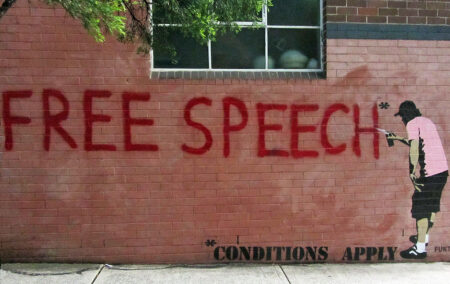The Prevention and Combating of Hate Crimes and Hate Speech Bill passed by the National Assembly this week is a profound threat to South Africans’ constitutional freedoms, and should be abandoned entirely.
So says the Free Speech Union of South Africa (FSU SA), a unit of the South African Institute of Race Relations (IRR).
In a statement, the FSU SA warns that the Bill compromises the foundational principles of democracy – the right to free speech and expression. It cautions ‘that the timing of this development, specifically in the lead up to the 2024 general elections, raises questions about possible political motivations in enacting the legislation now, and the risk of the ANC exploiting it as an electioneering tool’.
Earlier this year, the FSU SA strenuously opposed the Bill, denouncing it as both unconstitutional and unnecessary. In a compelling submission to the Select Committee on Security and Justice, FSU SA Director Sara Gon argued for the Bill’s complete withdrawal. She emphasised that ‘(the) defining characteristic of a society that values civil liberty is that hate speech is countered not through legal or political coercion, but via social or economic pressure’’.
The Bill criminalises hate speech – which it does not define – and defines hate crimes as intolerance or prejudice based on protected characteristics such as race, religion, gender identity, and sexual orientation.
The FSU SA notes: ‘Hate speech includes communication that intends to incite harm or propagate hatred, with exceptions provided for material in artistic, academic, journalistic, and religious contexts. The Bill furthermore sets out offences under the hate crime and hate speech categories, along with corresponding prosecution and sentencing guidelines. As the Bill doesn’t define hatred or hate speech, the legislation risks criminalising free speech under the guise of combating hate.
‘With the Bill now due on the President’s desk, the FSU SA urges a critical re-evaluation. The potential impact on free speech and civil liberties cannot be overstated. South Africa needs a legislative framework that upholds constitutional freedoms and addresses hate speech in a manner that does not compromise the foundational principles of democracy.’

